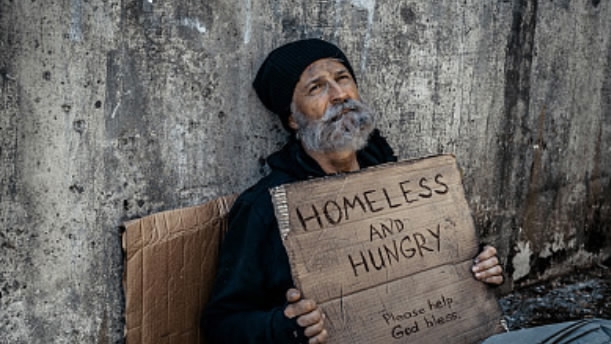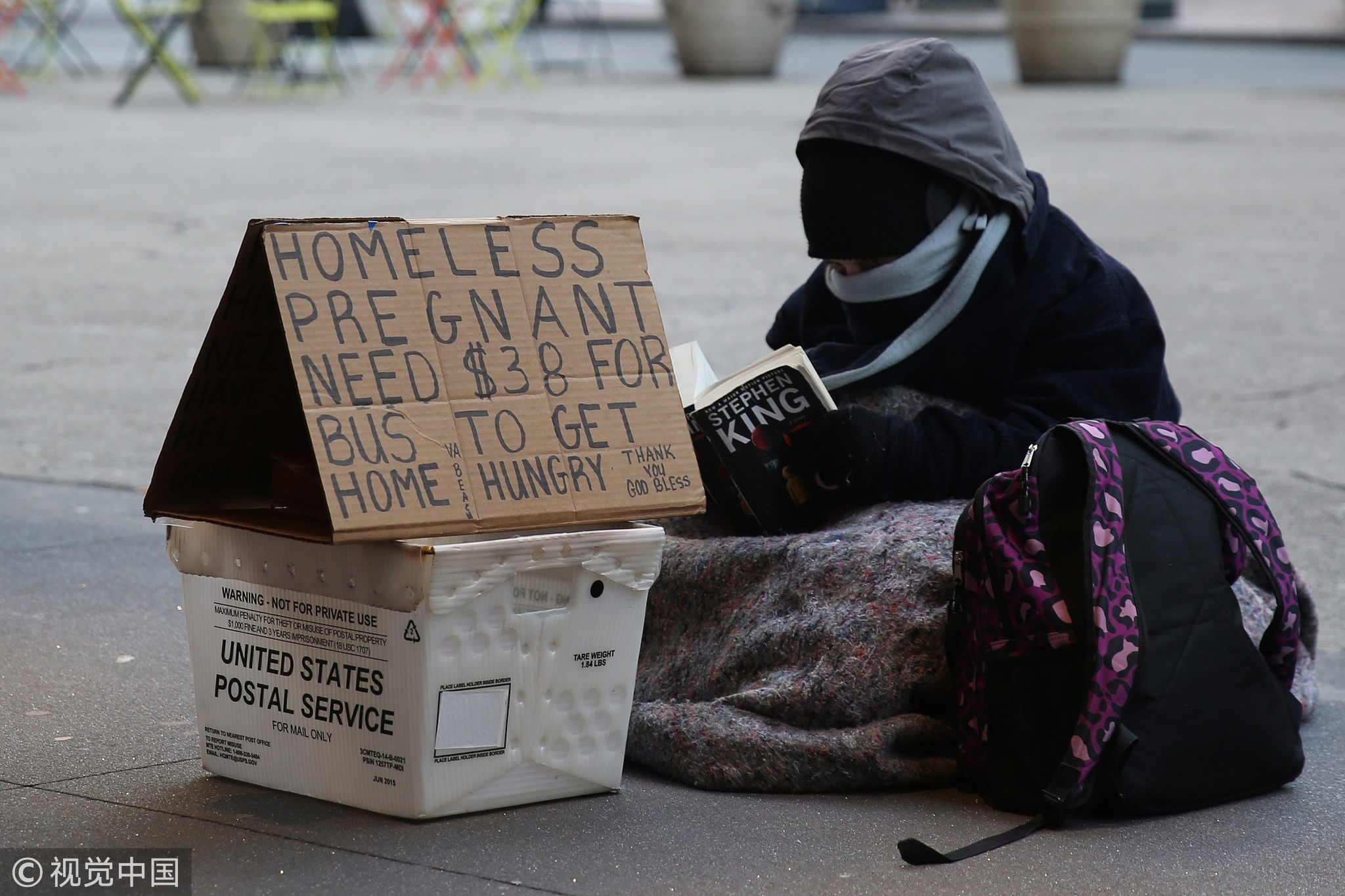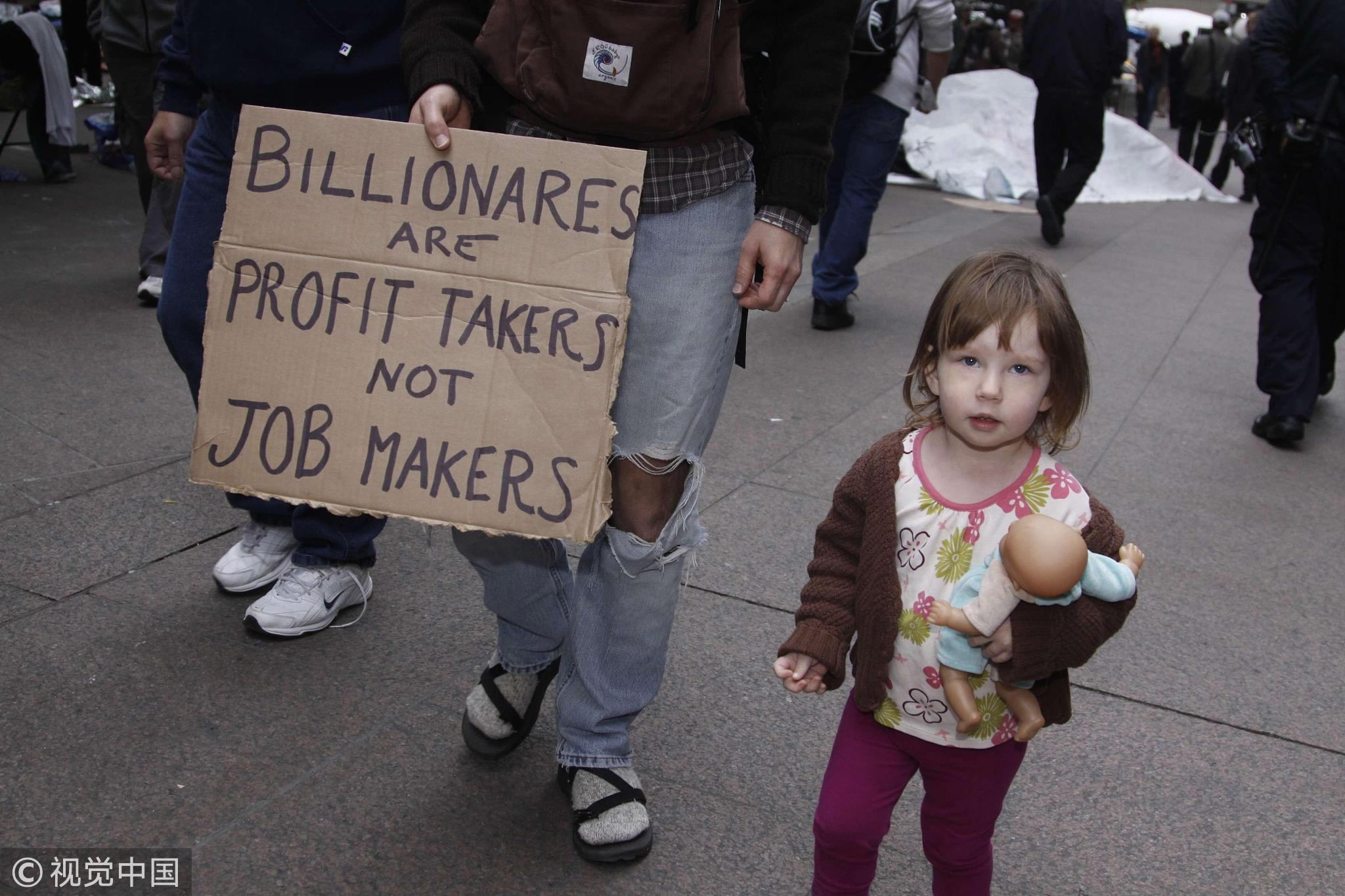
World
20:34, 25-Apr-2018
US is no exception when it comes to improving human rights
03:16

It is an indisputable fact that, in recent years, the gulf between the rich and the poor in the US has been growing wider. The number of homeless Americans has been on the rise, while countless others are living in abject poverty. As Philip Alston, the United Nations Special Rapporteur on extreme poverty and human rights once put it: “The American Dream is rapidly becoming the American Illusion.”
In an online article from Dec. 8, 2017, the UK daily newspaper The Guardian revealed that 52.3 million Americans, or 17 percent of the population, are living in poor communities.
Statistics from the US Census Bureau indicate that over 40 million Americans are living in poverty and among them 18.5 million are suffering from dire poverty.

A homeless person reads a book on a street while panhandling during freezing temperatures on 5th Avenue in New York, US on February 16, 2018. In the winter, thousands of homeless in the US struggle to survive on the streets, while cold weather, snow, and storms put them at risk of life threatening illnesses. /VCG Photo
A homeless person reads a book on a street while panhandling during freezing temperatures on 5th Avenue in New York, US on February 16, 2018. In the winter, thousands of homeless in the US struggle to survive on the streets, while cold weather, snow, and storms put them at risk of life threatening illnesses. /VCG Photo
A Stanford University report released in 2017 put the overall poverty rate in the southern agricultural regions of the US at 20 percent – with the figure rising to 33 percent for African Americans. In Native American communities in the rural west, the poverty rate is 32 percent.
After a fortnight tour of the country, Alston described the US as “one of the world's richest and most powerful and most technologically innovative countries.” However, he said, “Neither its wealth nor its power nor its technology is being harnessed to address the situation in which 40 million people continue to live in poverty.” His conclusion was that extreme poverty in the country “is a political choice made by those in power.”
Over the past 40 years, earnings among those with low incomes, who account for 80 percent of the US population, have increased by 25 percent, while the remaining high-income 20 percent of the population have seen their earnings almost double. According to Alston, the US is rapidly becoming a “champion of inequality.”
"I expect that the US will look at its own domestic record, and improve its domestic record. It is hypocritical to say to other countries that they should improve their records, while not working to improve its own," said Antonio Ginatta, US advocacy director at Human Rights Watch.

Week 3 of the Occupy Wall Street movement in 2011. The nationwide movement in the US brought to light grievances of the poor and the issue of wealth inequality in the country. /VCG Photo
Week 3 of the Occupy Wall Street movement in 2011. The nationwide movement in the US brought to light grievances of the poor and the issue of wealth inequality in the country. /VCG Photo
In an article on Dec. 6, 2017, The Guardian quoted a US government study that found that on a single night in that year, 553,742 Americans were homeless. The study also revealed a 4.1 percent increase over two years in the number of people living in rough conditions in New York. In his book, "Evicted," Matthew Desmond describes the “forgotten poor” as the millions of tenants in the US who are evicted from their homes every year after failing to keep up with their rent.
"Nothing is perfect in this world, nothing ever will be perfect in this world, but at least we can administer this world and understand who we are and basically help each other to develop the question of human rights and insert it in an understanding of the world, and not someone, like the United States, telling us how they define human rights," said Donald Cuccioletta, professor of the Center for American Studies at the University of Quebec in Ottawa.
Former US Vice President Spiro Agnew once said: “The United States, for all its faults, is still the greatest nation in the country.” Yet the US, rather than addressing its own faults in how it treats its people, uses human rights as a weapon for attacking other countries, in pursuit of its own interests.
The right way to promote human rights is through dialogue, not criticism, through cooperation, not confrontation. The improvement of human rights requires unremitting efforts from all countries in the modern world. Every nation must take this path. The US is no exception.

SITEMAP
Copyright © 2018 CGTN. Beijing ICP prepared NO.16065310-3
Copyright © 2018 CGTN. Beijing ICP prepared NO.16065310-3